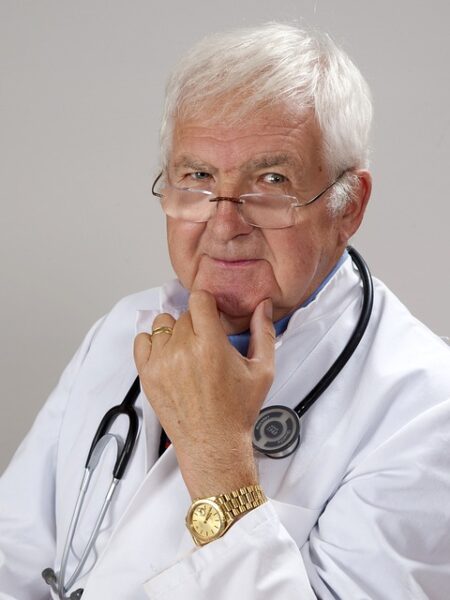A new study from Stevens Institute of Technology uncovers a troubling trend in doctor-patient relationships: healthcare professionals often view patients negatively when they express incorrect or unreasonable health beliefs. This finding could have significant implications for patient care and health outcomes.
The Hidden Judgments in the Doctor’s Office
When you visit your doctor, you’re expected to be open about your symptoms, behaviors, and health beliefs. This honesty is crucial for accurate diagnoses and effective treatments. However, many patients worry about being judged for their mistaken beliefs – and it turns out, this fear is well-founded.
Dr. Samantha Kleinberg, the lead researcher, explains: “People worry about their doctors looking down on them—and it turns out that’s an entirely rational concern. Our study suggests that doctors really do judge patients harshly if they share information or beliefs that they disagree with.”
The research team surveyed over 350 patients and 200 physicians, asking how they would view people with various medical beliefs. These ranged from accurate information to incorrect statements, including reasonable misconceptions, unreasonable beliefs, and conspiracy theories.
Surprising Findings Across the Board
The study revealed several unexpected results:
- Both laypeople and healthcare professionals viewed individuals more negatively as their health beliefs became more unreasonable.
- There was little difference between doctors’ and laypeople’s responses, or between responses from patients with chronic conditions and those without.
- Physicians were highly likely to view patients negatively for expressing mistaken beliefs about health-related topics.
Dr. Onur Asan, co-author of the study, noted: “The degree to which healthcare professionals held negative perceptions towards patients espousing misinformation surprised us, and suggests doctors may need additional support and resources to effectively treat such patients.”
Why it matters: This research highlights a significant barrier to effective healthcare communication. If patients fear judgment, they may withhold important information from their doctors, leading to misdiagnoses, ineffective treatments, and poorer health outcomes.
The study’s findings are particularly concerning given that surveys show most people hold at least some incorrect health-related beliefs. Common misconceptions include thinking vitamin C cures colds or that eating sugar directly causes diabetes.
Dr. Kleinberg emphasizes the importance of open communication: “We rely on our doctors to educate us and help us overcome these medical misconceptions—but that’s only possible if we’re able to express our ideas freely, without fear of being judged when we get things wrong.”
The research team acknowledges that more studies are needed to explore how these negative perceptions impact real-world patient-doctor interactions. However, they stress the urgent need for change in how physicians approach patient beliefs.
“If we want to have clear communication between patients and healthcare professionals, we need to change the way that doctors think about patients who are misinformed,” Dr. Kleinberg concludes. “Doctors need to overcome their tendency to judge patients, and actively encourage patients to share their thoughts—even their incorrect ones—much more freely than they currently do.”
As healthcare continues to evolve, addressing this communication gap could be key to improving patient care and health outcomes. Future research may focus on developing training programs for healthcare professionals to better manage their reactions to patient misinformation and create more open, judgment-free environments in medical settings.


